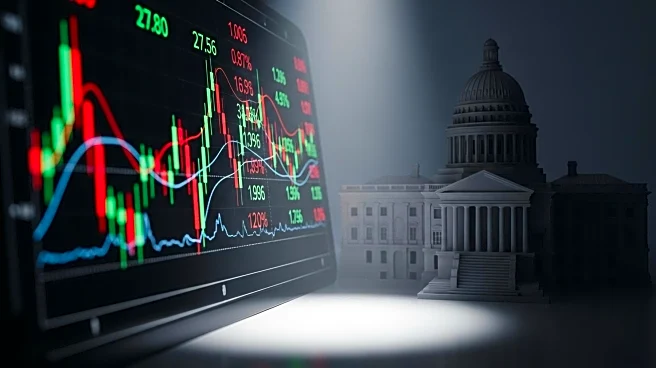What's Happening?
CNBC's Jim Cramer has expressed his views on the potential impact of a U.S. government shutdown on the stock market. Cramer believes that historically, government shutdowns have not significantly affected market performance. He notes that while the idea of a shutdown is concerning, past instances have shown that the market can remain stable or even gain. However, Cramer highlights a key concern: the delay in the release of vital economic data, which could affect the Federal Reserve's decisions on interest rates. The current situation arises as Congress struggles to agree on a stopgap bill to prevent a shutdown, with Democrats and Republicans at odds over health insurance subsidies. Cramer also points out that while the market might weather the shutdown, furloughed federal workers could face financial difficulties, and the broader economy might suffer if the shutdown extends.
Why It's Important?
The potential government shutdown holds significant implications for various stakeholders. While the stock market might not be immediately affected, the delay in economic data could hinder the Federal Reserve's ability to make informed decisions on interest rates, potentially impacting economic stability. Furloughed federal workers face immediate financial challenges, and prolonged shutdowns could lead to a decrease in consumer spending, affecting GDP growth. Analysts predict that each week of shutdown could reduce GDP growth by 10 to 20 basis points. This situation underscores the interconnectedness of government operations and economic health, highlighting the importance of timely legislative action to prevent disruptions.
What's Next?
If the government shutdown occurs, the immediate focus will be on how long it lasts and the subsequent economic impact. Lawmakers will need to negotiate a resolution to resume government operations. The Federal Reserve may have to rely on alternative data sources to make decisions if the shutdown delays official economic reports. The situation could also prompt discussions on the need for more robust mechanisms to prevent future shutdowns. Stakeholders, including businesses and financial institutions, will closely monitor developments to assess potential risks and adjust strategies accordingly.










